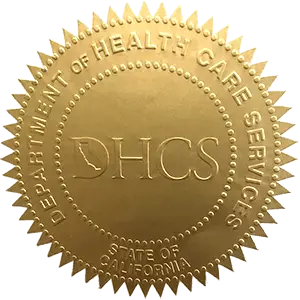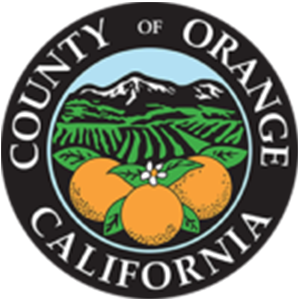What Is Obsessive Love Disorder and How Does it Differ from Healthy Love?
There was someone who believed in the saying, “Love conquers all.” Their love story began like any other, filled with sweet moments and promises. But soon, this person’s feelings intensified beyond the usual butterflies in the stomach.
Every waking moment was consumed with thoughts of their partner. It started with checking their partner’s social media profiles obsessively, feeling a surge of anxiety if they didn’t reply to texts immediately. They found themselves driving by their partner’s workplace just to ensure they were where they said they’d be.
Their own hobbies and friendships began to fade into the background, and their entire existence increasingly revolved around their partner.
It reached a point where their partner felt smothered and constantly under surveillance.
It was a love that was supposed to be warm and comforting, yet it had turned into an exhausting, suffocating obsession. This is an example of what is commonly known as obsessive love disorder.
Contact Story Wellness
What Is Obsessive Love Disorder?
Obsessive Love Disorder (OLD) is a condition where love and affection turn into an obsession, leading to possessive and often controlling behaviors. Unlike healthy love, which is based on mutual respect, trust, and individuality, OLD involves an overwhelming fixation on someone, often accompanied by intense jealousy, fear of abandonment, and a lack of personal boundaries.
It’s like clinging too tightly to a balloon – the tighter you hold, the more likely it is to burst.
OLD isn’t officially recognized in the DSM-5, but that doesn’t make it any less real for those affected.
Recognizing the Signs of Obsessive Love Disorder
There are two places you might need to recognize if OLD is in play in your relationships. First, yourself. Identifying obsessive love disorder in yourself involves self-awareness and honesty. Ask yourself: Are my thoughts and actions revolving excessively around someone else? Do I feel anxious or distressed when not in contact with them? Am I neglecting my hobbies, friends, or responsibilities?
If your answers lean towards ‘yes,’ it might be time to reflect on your relationship dynamics and consider seeking professional advice. Obsessive love disorder is most recognizable when the good feelings are replaced predominantly by anxious, nervous thoughts and feelings.
What about recognizing OLD in someone else?
When you’re in a relationship with someone who may be experiencing Obsessive Love Disorder (OLD), there are signs. You might notice that they demand an excessive amount of your time and attention, often feeling insecure or upset if you spend time with others or engage in activities without them.
Their jealousy can go beyond the normal scope. It looks a bit more like anxiety over your interactions with friends, colleagues, or even family members. They may constantly seek reassurance of your love and commitment during circumstances that seem disproportionate to the situation.
They might even try to control various aspects of your life—your schedule, your clothes, or your social life. These behaviors, which often stem from deep-seated insecurities and fears, can create a stifling and unhealthy dynamic in the relationship.
Signs that love has veered into obsession include:
- Incessant Need for Reassurance: This is like needing a constant emotional GPS confirmation – “Am I still loved? Are we still okay?”
- Jealousy and Possessiveness: A bit of jealousy is human, but OLD turns this into a full-time surveillance job.
- Losing Sense of Self: People with obsessive love disorder often become like satellites, orbiting around their loved one and forgetting their own life missions.
- Ignoring Personal Boundaries: OLD makes the concept of personal space as foreign as a language never learned.
Can Obsessive Love Disorder Be Cured?
Helping someone with OLD is delicate. Start by expressing your concerns gently and without judgment. Encourage them to engage in activities independent of their relationship and to maintain a social support system. Suggest professional help subtly, perhaps by sharing resources or offering to accompany them to a therapist. It’s important to maintain your boundaries while offering support.
While there’s no one-size-fits-all cure for obsessive love disorder, it is certainly manageable with the right approach. Mental health treatment is certainly warranted for in some cases. Treatment typically involves therapy, such as cognitive-behavioral therapy (CBT), which helps in changing negative thought patterns. In some cases, medication may be prescribed to address underlying issues like anxiety or depression.
Narrative therapy can be a powerful tool in addressing Obsessive Love Disorder, as it allows individuals to reframe and reinterpret their personal stories, separating themselves from their issues. By externalizing the problem, it helps them gain a new perspective, enabling them to rewrite their narrative in a healthier, more empowering way, and fostering a sense of agency over their emotions and behaviors.
The key to recovery is recognizing the problem and seeking professional help. Remember, healing is a journey, not a destination.
The Cousins of Obsessive Love: Related Disorders
OLD often travels in the same circles as other disorders:
- Borderline Personality Disorder (BPD): People with BPD might experience relationships that oscillate between extreme closeness and distance, similar to OLD’s intensity.
- Obsessive-Compulsive Disorder (OCD): OCD’s relentless thoughts and behaviors can manifest in OLD as an unyielding focus on a person.
- Attachment Disorders: Early life attachment issues can set the stage for OLD-like symptoms later in life.
Love, Not Lost: Getting Help With OLD
Love should enrich your life, not consume it. If you or someone you know seems caught in the web of obsessive love, reaching out to a mental health professional is a wise and brave step forward.
At Story Wellness, we’re committed to providing a safe haven for healing and growth. Our team of compassionate professionals is here to guide you through every step of your journey towards wellness. Don’t let obsessive love disorder define your story. Reach out to us today and start writing a new chapter in your life, one filled with self-love, understanding, and healthy relationships.






